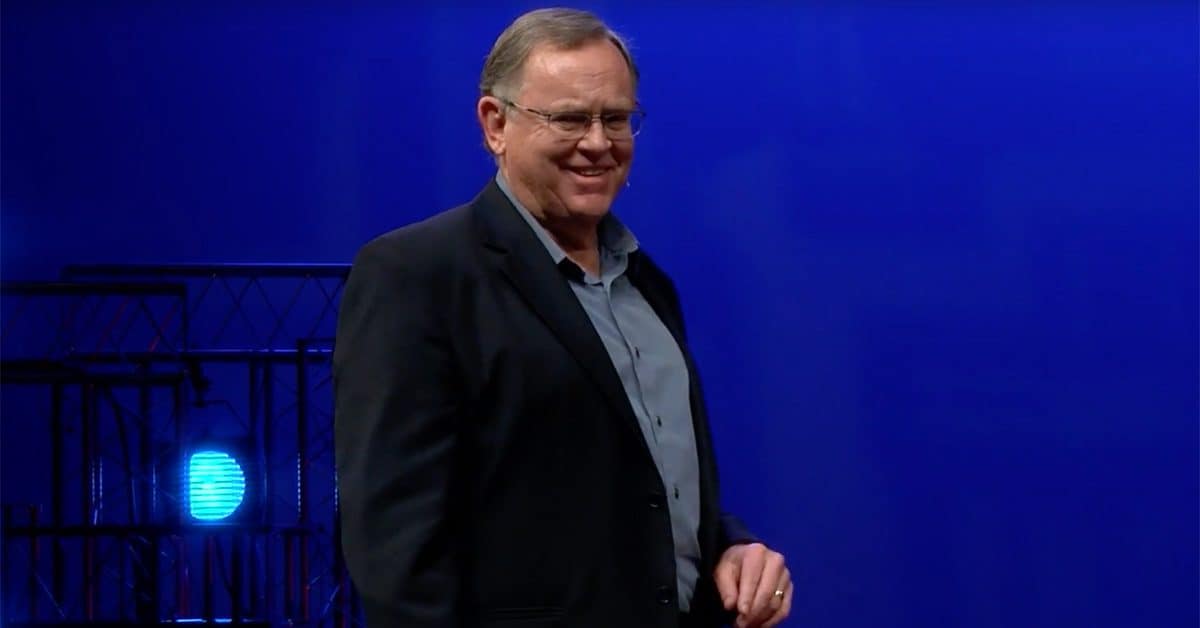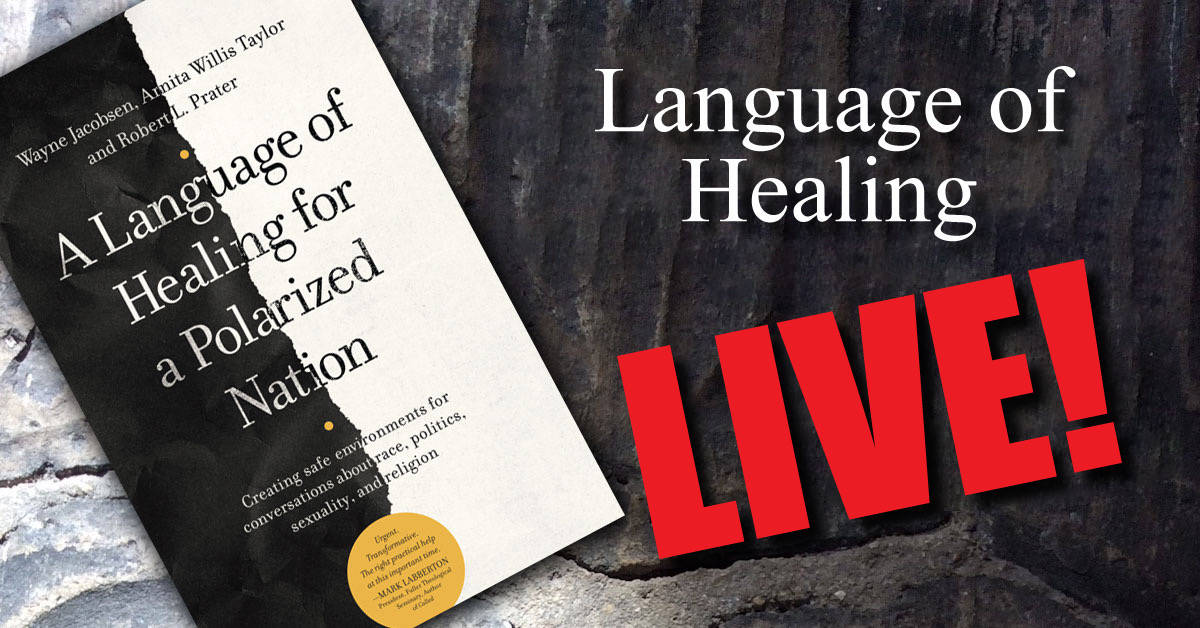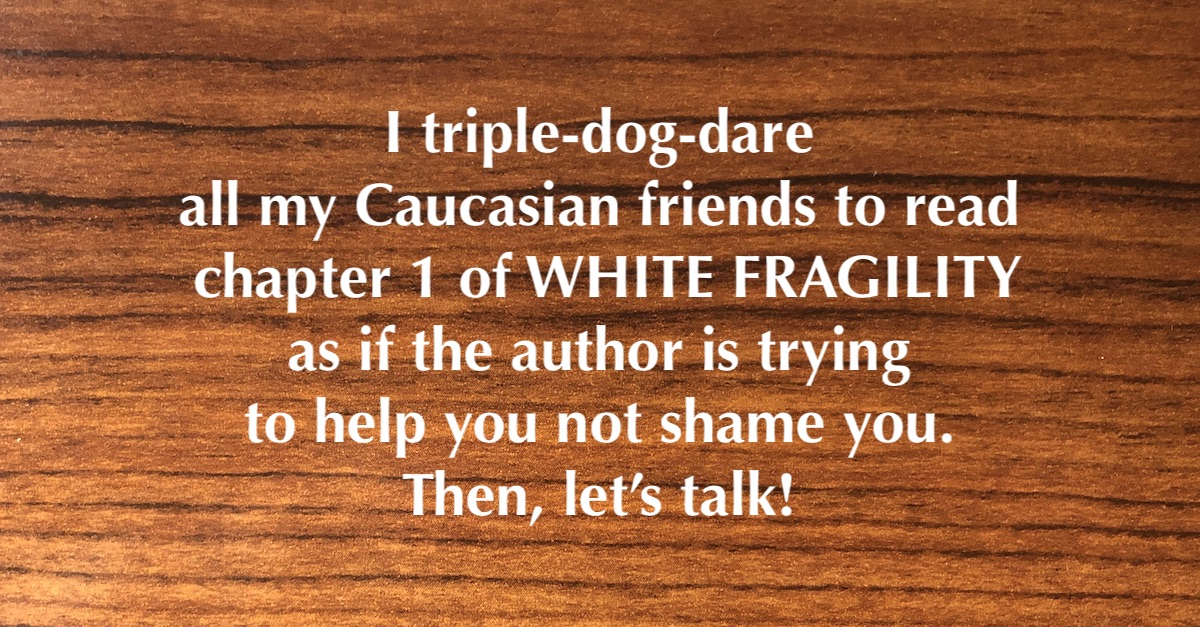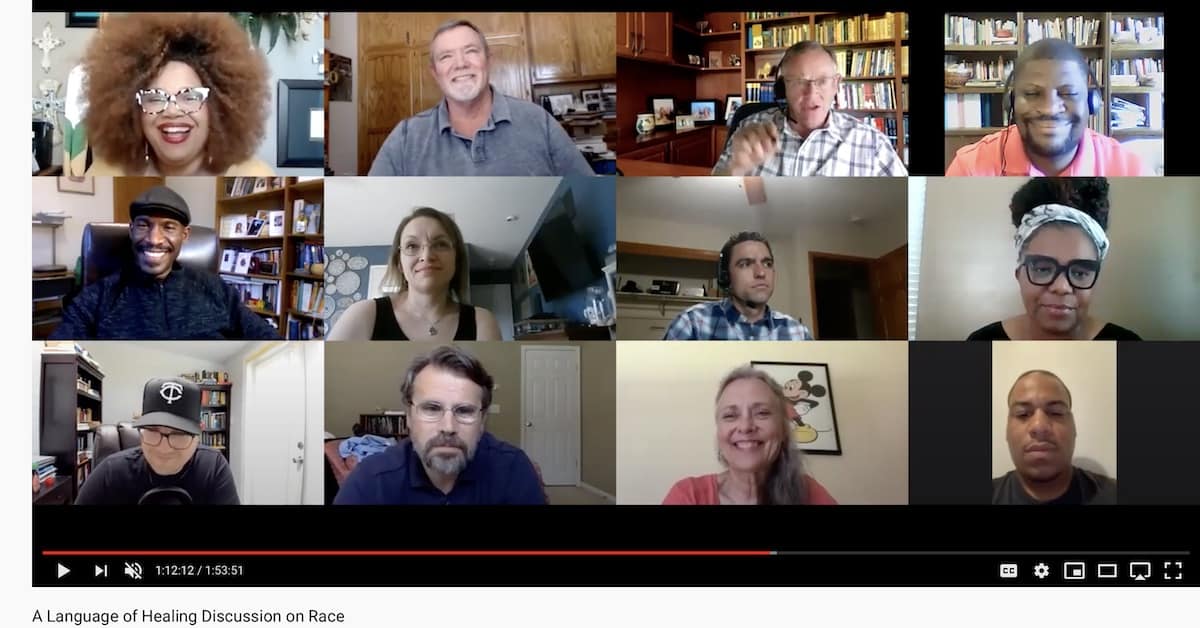Are you as tired of all the rancor in our national dialog as I am? Do you know most of it is contrived to fan the flames of fear or advance someone’s agenda? We can’t seem to simply disagree anymore; we have to vilify our opponents in the hope of garnering enough support to force our desires on the other half of the citizenry. And many Christian groups just play along, fomenting the hostility they hope will give them an advantage in forcing their way of life on others. Is this what our founders foresaw when they spoke of, “a more perfect union”?
Of course not! Maybe if we just stopped and listened long enough to those who disagree with us we would see them as fellow-citizens with similar hopes and fears to our own. Then we might actually respect each other in spite of our differences and together seek the kinds of solutions that would be in the best interests of all of us, not just a few of us.
No, that isn’t possible with every issue, but I promise you we could find a lot more common ground than our current process allows. It can be done. I’ve helped people do exactly that across some of our major cultural controversies and explain how on this video taken from a TEDx presentation from last March in Abilene, Texas. It finally dropped this weekend and is now available. You can view the embedded version below or if you have trouble with it, view the video here.
Finding common ground with people who have different worldviews than ours, is really a matter of applying the so-called Golden Rule to our relationships: “So in everything, do to others what you would have them do to you.” Who to you want to exclude as an “other”? Liberals? Conservatives? The GLBTQ community? The poor? The undocumented immigrant? When Jesus said “other”, didn’t he mean all others? If we will respect the freedom of others as much as we want them to respect ours, we will find our way into more graceful conversations, and the chance to work together toward more enduring solutions to the problems our society faces.
More than ever we need a courageous group of people willing to turn the tide of our national animosity and lead the way into those conversations that heal our divide and offer respect to our fellow human beings. If you find yourself in agreement with what I say here, please help me get the word out. I’m not selling anything here, just hopeful that there is a more excellent way than the one we’ve chosen. If you want more resources, please see my BridgeBuilders website.
Share it however you can with whomever you can and see if we can’t have an impact on turning the tide of animosity in our country (and I suspect in others as well). Starting in our own relationships of family and friends as well as in your social media feeds. Encourage people turn down the anger and really listen to others. You’ll find there are more of us who want fairness and compassion in our society, rather than animosity and arrogance. The future of our republic just might be at stake.








Yes, I do think you’re missing the point, Bill. We can love people who struggle with sin without condoning that sin. Jesus did it all the time–with a cheating tax-collector, a woman caught in adultery, with disciples who wanted to call down fire from heaven on unsuspecting Samaritans. He does it with you and me every day. It’s strange how we can see people who struggle with certain sins as less-than-human, or at least not worthy of love. I don’t think that’s God’s view. He knows love is their only hope, to draw them out of the brokenness and into his life. I have friends who are in this country illegally. They have been for 20+ years. Our culture has exploited their labor and does nothing to honestly solve our immigration problem. They do go to our schools, but they have no access to medical care. In fact, Sara and I have paid for many of their medical needs rather than watch them suffer. You have a very stereotypical view of such people, borne of the conservative media vilifying them. I’d encourage you to get to know some, love them, and see how Jesus reaches out through you to treat another human being in desperate circumstances with his affection.
Your blog is timely, and is a conversation I find myself engaged in regularly. How do we respond to the world around us?. What does it mean to love our enemies, etc?
I think that we forget that that the world is dead in trespasses and sin. We forget that what we see happening is the inevitable conclusion of man without God. And even with God we wrestle with principalities and powers. What does a person expect? That the world and the flesh will comply with godliness? It is ALL perverted from the initial intent of creation. Do we think we can save the world system? Do we think indignation and harsh rebukes will really make any difference? I don’t. The world is the world. Has always been.
Over the years, the “gospel” has been changed from that of forgiveness and being accepted by God on the merits of Christ’s work on the Cross to an expectation that people should change their behaviour to order to be acceptable to God, yet without the power source to do so.
We need to remember as believers that we are really not different from people in the world except for His Spirit in us. But for the grace of God, we would be on the same path as everyone else, thinking the same way. We may very well be doing exactly the same things we are so indignant about if we were still blind. Being upset about someone’s behaviour/thinking is a bit like the pot calling the kettle black. We can see a tiny bit better by the grace of God. They can’t.
Social change happens when the majority of people see things a certain way over a long period of time. If we desire to see godliness in our society, then we need to have s lot of godly people, and if we expect to see godly behaviour without God, we will be sorely disappointed. And an unreasonable expectation.
So the effort in my opinion is for us to spend time with Christ and let Him love through us, believing God will influence people through our lives in order to have an encounter with the Living Christ, who opens our eyes, sets and free and gives His Spirit to work in us to will and to do.
Does this mean we give up on social issues, like LGBTQ+2 (here in Canada)? Not necessarily, but our efforts to speak into them had better not be based on the illusion that someone can simply set aside their thinking when immersed in spiritual darkness. We cannot simply declare that illegal immigration should stop and expect people in hardship to stop hoping and seeking a solution or their despair. And fear-based thinking is not helpful either.
I am becoming more and more convinced that many of us as believers need to step aside from the social and political dialogues that swirl around us, and learn to walk in the Spirit, listening to the leading of the Spirit of God and engage in those things that He directs us to. The focus is really the next person we encounter and how do we show the love God regardless of where they are at. I am still not good at that let alone a much larger picture. For those who God calls to speak into the larger social and political systems, then by all means follow that path, but it is not for every one.
I may sound like I do not care what happens in our society and culture. That is not true. But anger and harshness that the Church has become known for is not helping, and is actually pointless and ineffectual. Holy Spirit, lead us in a better way.
Well done Wayne. Can you get on TED TALK to reach more people with your straight down the barrel
commonsense. They sure need it.
Well done.
So proud of you.
Gail from Oz
Good morning.
I really enjoyed this message.
Thanks
Clarice
Hello Wayne,
I truly enjoyed the TEDx presentation. Well said. I wanted to affirm your approach. Just yesterday afternoon I had the privilege to spend a few hours with some of our cities respected business and spiritual leaders taking opportunity to listen to nobel prize winner FW de Klerk, former president of South Africa speak on the this same theme. As many know de Klerk was instrumental in the governance shift from the immoral practices of apartheid (his words). President de Klerk spent 30 minutes describing the process with penetrating examples on exactly what you described in your presentation. As he shared the process they undertook to gain an agreement under extreme pressures from within the country, and from the international community, he touched on all the same points you were making. The process for change requires that sincere intentionality to ‘deeply’ listen, face to face discussions, a defining consensus on a ‘negotiated common good’ that envelops all the groups needs/fears and hopes. He noted as you did, that leadership to initiate these dialogues requires a ‘statesmen’ committed to the process of finding the common good vs the politician seeking the good of a party or a select group of constituents. I want to applaud your statesmen leadership and encourage ongoing replication and nurturing of others.
Whether it be a country, a city, a neighbourhood, school, church committee or spouses deciding on life’s twists and turns, these truths are universally applicable. I think of a statesman as someone who has the heart and wisdom of the character John as he dialogues with Jake Coulson. Thanks for continually shedding light into these unique times.
Cheers
One of your Canadian neighbours
Brant